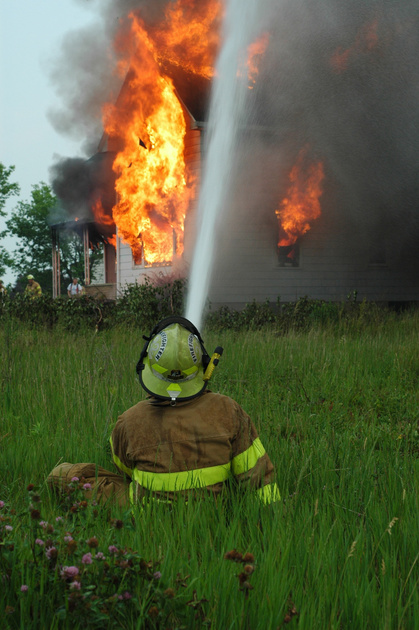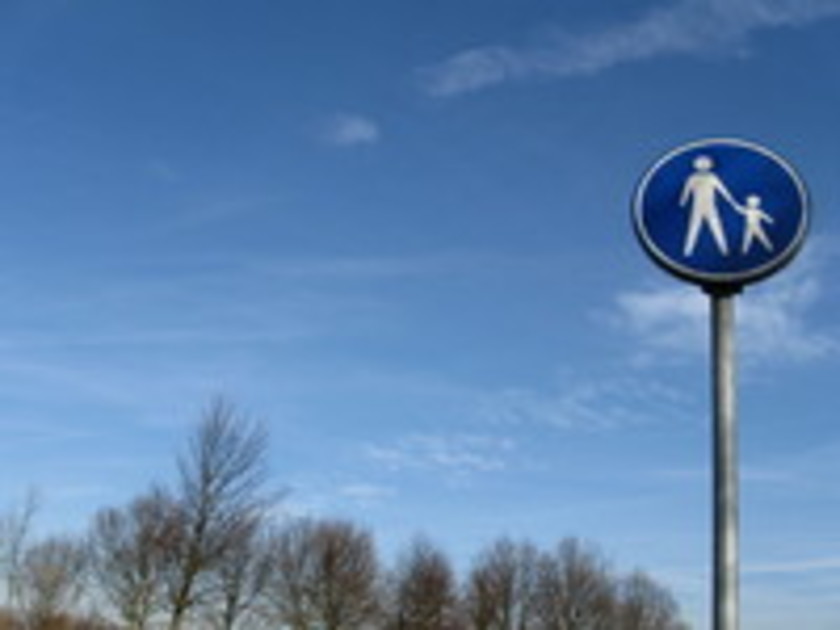
Dear Dr. T.,
My family went through a trauma recently. There was a fire in our home, and though we all got out safely because of the working smoke alarms, some of the children did get hurt in the rush to get out. We, the parents, suffered smoke inhalation because we ran around making sure everyone was out and it took a while to get out of our three-story home.
Boruch Hashem, no one was seriously injured. We [the parents] were treated in the hospital briefly for smoke inhalation. Some of the children were treated at the scene for cut, bruises, and hysteria. The two children most affected were our teen age sons. Our fourteen-year-old was away in an out of town yeshiva and did not come back. He was frantic about how everyone was doing – and about damage to his stuff. Our twelve-year-old shattered his pelvis when he jumped down the stairs and had to be in a body cast for three months. He was in the hospital and rehab for most of that time and still has physical therapy today. However, the doctors assure us he will be 100%. He is a bright boy, so between tutors, friends, and us, he has kept up with his studies- more or less- and is back in school. There was some damage to the house and the kids lost some of their stuff, but insurance did a good job of covering the cost, so we’re ok there as well.
So, all thing considered we were glickluch, no? So, why am I writing you?
Well, here’s the point. Whenever we meet people and they bring this up, they say things like, “So, you went for trauma therapy, right?” Or, “For sure you did EDMR [don’t even know what that is…]? What’s that like?”
Now, actually, we didn’t, so I am beginning to wonder if I missed a step here. Everyone seems fine, no problems or nightmares – so, I was thinking I would let well enough alone. And, I draw my strength from the teachings of Rav Avigdor Miller who says that when something happens – fix the cause. So, we checked the smoke alarms and fire extinguishers, and developed a safety plan with our kids.
At this point, I want to do the responsible thing.
Should I take my family for therapy now after these three months?
Dr. T.,
Trauma affects each of us differently, depending on our personality, the type of event, and its severity. Some of us are more resilient than others and bounce back quickly. Trauma that is non-interpersonal, like a car accident, is easier to deal with than a personal attack, such as an assault. It can affect even those not- present, like your son who was away in yeshiva. It is hard to predict its impact on the individual. Since I have not met your family, I cannot comment on whether treatment is necessary. What I will do is explain what to look for -without jumping to the assumption that trauma=PTSD and therapy.
The effects of trauma are normal reactions to abnormal events. So, for the first few months after the fire, your children may have shown changes in behavior or mood. Perhaps they suffered from nightmares and flashbacks or were regressed and clingy. It would not have been unusual for them to fall behind a bit in school or have difficulty maintaining friendships. Feeling anxious and stressed out is also a typical symptom which sometimes graduates into panic attacks. As people relive the trauma, they often experience feelings of hopelessness, helplessness, and self- blame. In this early stage, many people find it helpful to get therapy for support and symptom relief
In most cases, these feeling gradually dissipate and the individual goes on to lead his previous life. However, in some cases, the symptoms remain or even exacerbate, and the person may go on to develop PTSD [post-traumatic stress disorder]. PTSD is a more severe stress reaction which interferes with the person’s ability to resume necessary activities, regulate emotions, and maintain relationships. This condition generally does require treatment from a licensed professional. If you are considering EMDR, make sure the practitioner is both trained and certified.
So, the question is – where do your children fit in? Are they continuing to suffer and do poorly, or are they back to themselves? Have they overcome the effects of trauma or are they suffering from PTSD? Has the trauma triggered other issues that some of the children may be dealing with? For example, if your child was always hesitant about going on school bus, does he now absolutely refuse to go at all? By looking at your child’s behavior and moods – perhaps together with your spouse and school staff- you can make a determination about his need for therapy at this point.
Whatever you decide, there are also some ways that you, the parents- can help your children at home. Talk about it. Normalize the experience [stuff happens]. Have your children talk about it. Listen closely for any inaccuracies or wild imagining that may be troubling the kids. Are there any feelings of self- blame that are plaguing them? We all process differently. You may find that one child is wild to talk about his experience, while another prefers to hold his own counsel. We want to respect each child’s psychological reality and way of dealing with this. But, having the event out in the open is healthy and makes it less likely for it to turn into a source of shame.
You may want to apply a rubric that was developed in working with Holocaust survivors [and often applied in cases of trauma] to your situation. The terms – before, during, and after- explain a victim’s level of functioning. So, if a child was in a solid home and doing well, that is very different from a neglected child who functioned poorly. If the event was horrifying and extreme- well, that’s much scarier than an event where family is present and supporting each other at the time. And, if after the event, life goes back to normal, that is far, far easier than having a disrupted lifestyle, moving around from country to country.
Most important is the parents’ level of functioning. If you are okay, very likely they will feel comfortable and secure as well. And, most important, your ability to be thoughtful and draw strength from Rabbi Miller’s guidance will serve your family well and be an anchor in a time of difficulty.
 Previous
Previous

